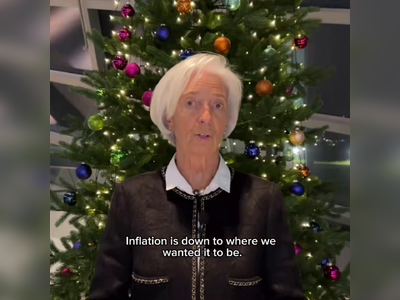
Tesla's Sales Plunge in Germany Amidst Market Challenges
Sales of Tesla vehicles in Germany fell by 76.3% in February, reflecting broader difficulties in the electric vehicle market.
Tesla, the exclusively electric vehicle manufacturer, reported a sharp decline in sales in Germany, with only 1,429 units sold in February 2023, representing a 76.3% drop compared to the same month in the previous year.
This follows a significant decrease in sales seen in January, attributed to controversies surrounding Elon Musk, the CEO of Tesla, as noted by the Federal Motor Transport Authority (KBA).
Factors contributing to this decline include a shift in Tesla's product lineup, particularly with the introduction of an updated version of its popular SUV, the Model Y. The overall sales trend for Tesla in Germany has been negative for over a year, impacted by factors such as the cessation of purchase incentives and ongoing inflationary pressures.
Despite the downturn for Tesla, the overall electric vehicle market in Germany showed signs of growth, with electric vehicle registrations increasing by 31% year-on-year in February, totaling 35,949 units sold.
However, Tesla's market share in the German electric vehicle sector has decreased to approximately 4% for February, down from an average of nearly 10% in 2024.
Analyst Constantin Gall from EY observed that Tesla's declining sales trend is echoed in other European markets, where vehicle sales have also seen declines, such as a 70% drop in Austria and Switzerland, 54% in Italy and Belgium, and 26% in France.
Elon Musk has faced increased scrutiny in recent months following his public support for Germany's far-right party, the Alternative for Germany (AfD), which garnered over 20% of the votes in the federal elections held on February 23.
Tesla produces the Model Y and Model 3 at its only European factory, located near Berlin.
Overall, the number of new vehicle registrations in Germany fell to approximately 203,400 units in February, a decrease of 6.4% year-on-year, following a 3% dip in January.
The electric vehicle market continues to face challenges related to weak demand and a scarcity of entry-level models, with the average selling prices of electric vehicles remaining higher than those of traditional combustion engine vehicles.
Additionally, the European Commission announced a delay in the implementation of stricter carbon emission regulations for vehicle manufacturers, originally set to take effect this year.
This has provided temporary relief for manufacturers facing potential fines in the billions of euros.
However, Gall stated that this amendment 'only postpones the problem,' as manufacturers will no longer be compelled to lower prices to encourage consumers to purchase electric vehicles.
This follows a significant decrease in sales seen in January, attributed to controversies surrounding Elon Musk, the CEO of Tesla, as noted by the Federal Motor Transport Authority (KBA).
Factors contributing to this decline include a shift in Tesla's product lineup, particularly with the introduction of an updated version of its popular SUV, the Model Y. The overall sales trend for Tesla in Germany has been negative for over a year, impacted by factors such as the cessation of purchase incentives and ongoing inflationary pressures.
Despite the downturn for Tesla, the overall electric vehicle market in Germany showed signs of growth, with electric vehicle registrations increasing by 31% year-on-year in February, totaling 35,949 units sold.
However, Tesla's market share in the German electric vehicle sector has decreased to approximately 4% for February, down from an average of nearly 10% in 2024.
Analyst Constantin Gall from EY observed that Tesla's declining sales trend is echoed in other European markets, where vehicle sales have also seen declines, such as a 70% drop in Austria and Switzerland, 54% in Italy and Belgium, and 26% in France.
Elon Musk has faced increased scrutiny in recent months following his public support for Germany's far-right party, the Alternative for Germany (AfD), which garnered over 20% of the votes in the federal elections held on February 23.
Tesla produces the Model Y and Model 3 at its only European factory, located near Berlin.
Overall, the number of new vehicle registrations in Germany fell to approximately 203,400 units in February, a decrease of 6.4% year-on-year, following a 3% dip in January.
The electric vehicle market continues to face challenges related to weak demand and a scarcity of entry-level models, with the average selling prices of electric vehicles remaining higher than those of traditional combustion engine vehicles.
Additionally, the European Commission announced a delay in the implementation of stricter carbon emission regulations for vehicle manufacturers, originally set to take effect this year.
This has provided temporary relief for manufacturers facing potential fines in the billions of euros.
However, Gall stated that this amendment 'only postpones the problem,' as manufacturers will no longer be compelled to lower prices to encourage consumers to purchase electric vehicles.











